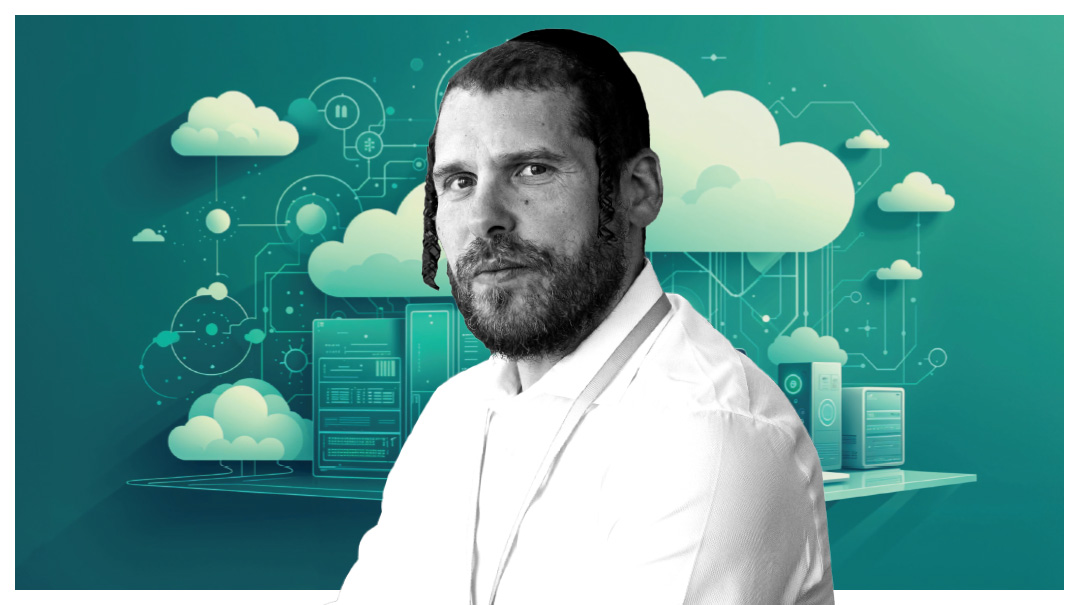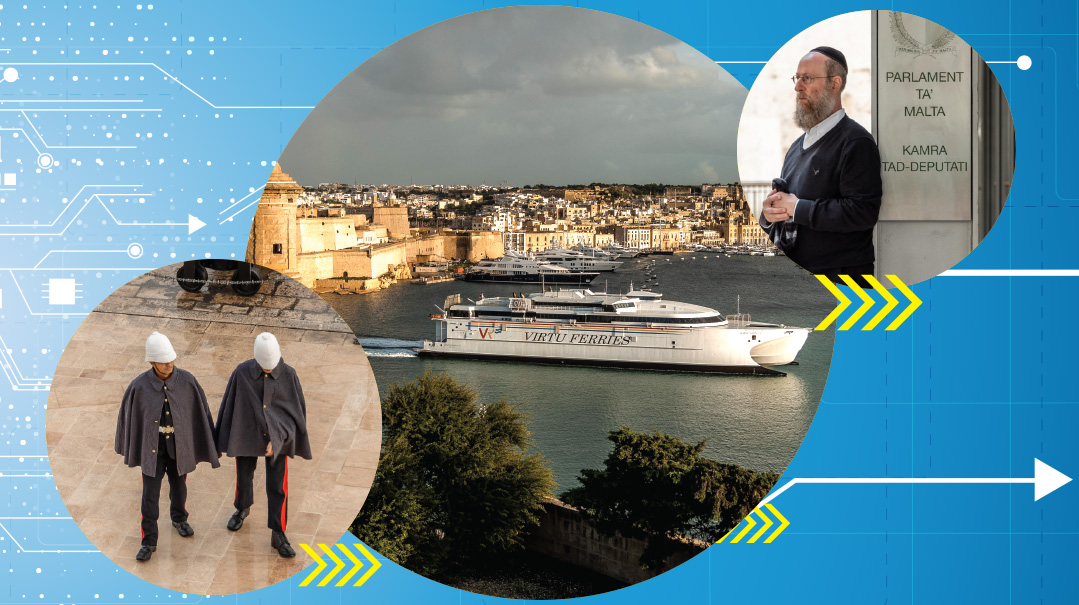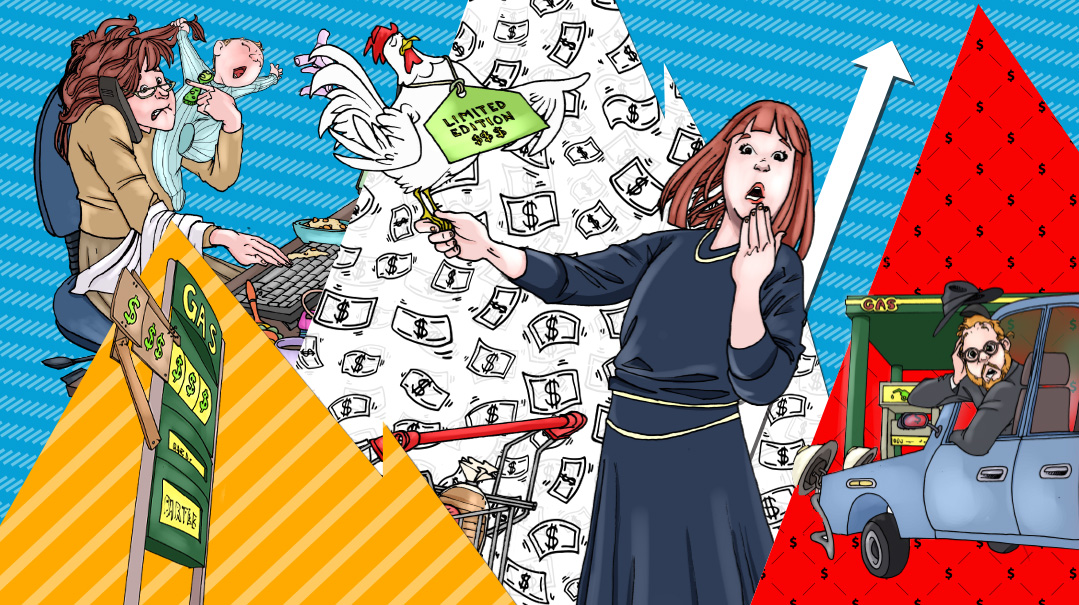Burst of Energy
| February 21, 2023Energy developer Ofer Yanai is convinced renewable energy is the light of the future, and he’s got his bank account to prove it
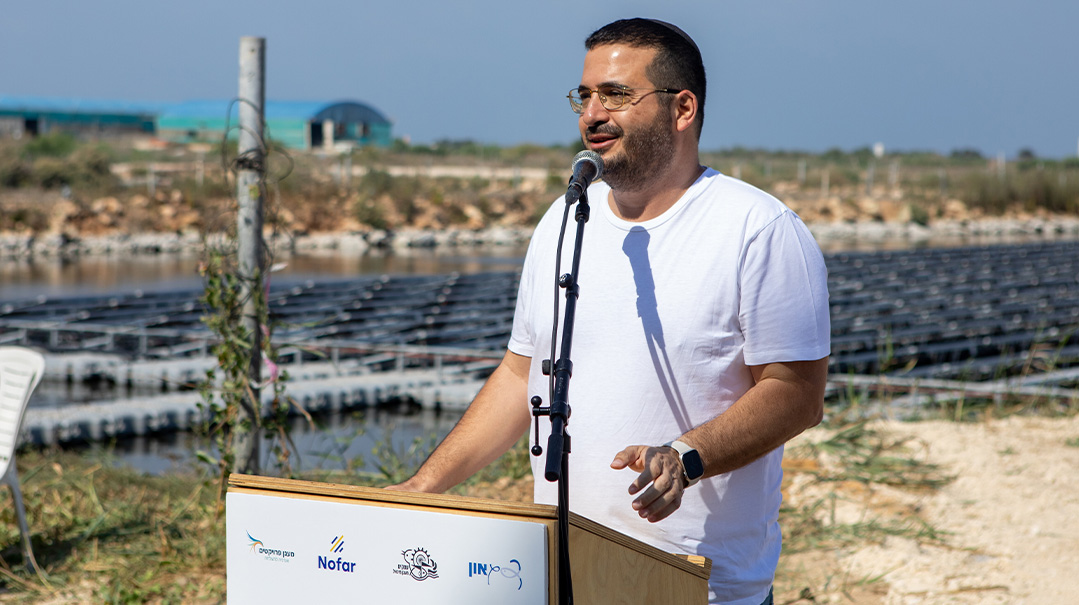
Photos: Reuven Kupitinsky, Maxim Goldberg, Flash 90
A few weeks after the Israel Electric Corporation announced a hike in tariffs, Ofer Yanai, founder and CEO of Nofar Energy, doesn’t actually say the words, “I told you so,” but his message is pretty clear.
“Today everyone understands that the only solution to the rising price of electricity is renewable energy,” he says.
He plays a clip of an interview he gave in 2018, in which he’s standing next to the first floating solar panel system in Israel and declaring that soon floating solar projects will be a multi-billion-dollar market. At the time his was a lone voice in the wilderness, but today, with the floating solar panel industry in Israel valued at around a billion dollars, of which Yanai’s company alone controls about a third, it’s time to admit that he was right.
Ofer Yanai is the rags-to-riches model of how to start a multi-million-dollar company without a shekel of investment capital, but with a good idea and a lot of forward-thinking.
But his path to success was filled with potholes, and while growing up, quite unimaginable as well. He was born in 1975, the second of eight children, to parents who’d immigrated as children from North Africa and lived in the freezing, leaky transit camps of the 1950s. But Mordechai and Tuni Yanai were an energetic couple who valued education, and moved to the struggling development town of Yavneh, built on the ruins of the ancient city, where they ramped up the level of education and helped make the town the thriving place it is today. For years, Mordechai Yanai was principal of the city’s dati high school (before that he worked as a blacksmith), and his wife, with a PhD in Early Education, was the superintendent of all the city’s kindergartens.
Ofer went through the dati education system, and spent his teenage years at the Nechalim yeshivah high school. He learned for a short time at Yeshivat Mercaz Harav and then transferred to Yeshivat Har Etzion for hesder, where he did his army service in the tank corps. He then picked up a degree in a combination of physics, mathematics, and computer science.
Ofer might have had big dreams, but admits that he never believed he could actually fulfill them.
“I had never really believed in myself,” Ofer says. “I grew up in a development town and in yeshivah and then the army, I was always comparing myself to the ‘city’ kids — although today I see how the challenges of my childhood actually helped me to develop creativity and independent thinking. Still, my self-esteem fell further when I started working in high-tech and the dot-com bubble burst. The company I had joined only half a year earlier shut down, leaving me unemployed.”
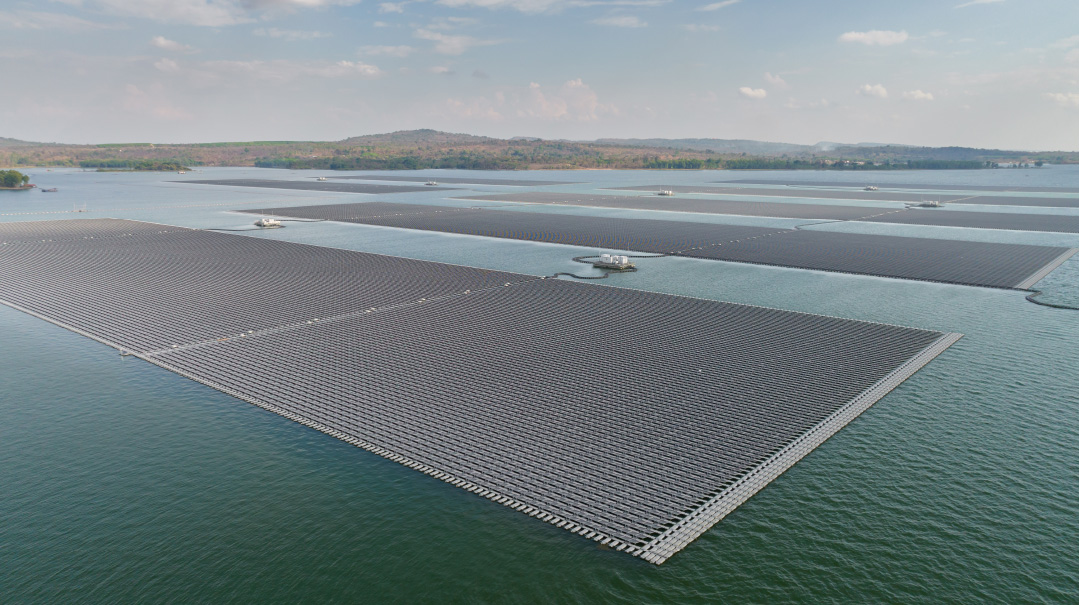
Yanai realized he would have to restart his career. “I decided to try independent entrepreneurship. I developed a special technology for food delivery orders to businesses and called my company ‘Go4it,’ but despite my hopes for lucrative contracts, the business model wasn’t set up properly, the company never took off, and I found myself saddled with debt.”
Still, he refused to give up. He knew he’d have to brush up on his skill set, and as a first step, he decided to earn a master’s degree in business administration from Ben Gurion University. And then, in the course of his studies, he came across the nascent field of renewable energy.
“Back then, the renewable energy industry in Israel didn’t really exist,” Ofer says, “but it was clear to me that this was going to be big, and it really sparked my curiosity.”
Renewable energy, as opposed to energy sources such as coal, kerosene, diesel fuel, and gas — which are both pollutants and expensive — offers an alternative, replacing the familiar sources of energy with naturally replenishing ones, such as wind, moving water, and sunlight. They come with no pollution and at a negligible cost after operations are set up.
But Ofer Yanai’s breakthrough didn’t come before a lot of heartbreak and failure. He opened his company, Nofar, in 2010, and initially, he signed a deal with a number of moshavim to install solar panels outside residents’ homes. But he got caught in the web of government regulations.
“I invested months of work and hundreds of thousands of shekels in closing deals, but in the end we couldn’t obtain the necessary permits. My entire investment went down the drain. I remember how depressed I was after that — I just camped out in my parent’s house for weeks.”
But then he had an idea that made him jump out of his self-imposed exile.
“What had really doomed my attempt to work with the moshavim was government regulations. Suddenly it occurred to me that instead of working with moshavim, I should work with kibbutzim, which are self-regulating as they’re considered to be an extension of a government agency.”
With the kibbutz initiative — undertaken without a shekel in his pocket — by 2012, Ofer Yanai was suddenly holding onto four percent of the solar energy output in Israel. He’d already done 131 projects in kibbutzim, including a thousand roof-top solar panel systems, selling off the energy surplus.
Over the last decade, the renewable energy industry has grown exponentially, and currently accounts for 28 percent of the world’s energy supply.
“Until a few years ago, the world was addicted to Russian fuel and cheap Chinese manufacturing,” Yanai explains. “Many countries reduced their dependence on China after the coronavirus, and the same is happening with Russian fuel in light of the war with Ukraine. As a result, more and more businesses have been created to meet the demand for cheap solar panels. I expect this to spread to Israel as well. Energy storage has also improved and become much more efficient. The bottom line is that the energy industry is changing, and I believe we’ll soon see it based almost entirely on renewable energy.”
While solar is the cheapest renewable electricity resource, it has less energy density than fossil fuels and is more land-intensive. Natural gas, for example, is approximately 80 times more power-dense than solar. This is especially challenging because solar developers often face opposition from citizens threatened by the loss of arable land.
However, floatovoltaics — floating solar panel structures — are installed on water bodies like lakes, basins, ponds, reservoirs, or off-shore waters instead of on solid structures like a roof or terrace or land space, reducing the land requirement necessary to produce renewable energy.
Nofar is Israel’s pioneer in the field of floating solar projects. Since 2018, when Nofar connected its first project, Nofar has connected over 100MW of solar power all across Israel.
Ofer says his own starting point was the fact that Israel is a crowded country with limited space for energy production. “So we started out by utilizing roof space to collect solar energy. Then we moved on to the floating solar panels, because we have several large bodies of water in Israel and it would be a pity not to utilize them for energy production. Now our focus is on solar powered cars that will collect energy through solar panels installed on the roof. The concept is to take advantage of any free space from which you can collect energy from the sun.”
Three years ago, the company made a major step forward, being listed on the Tel Aviv Stock Exchange at a value of over 2 billion NIS, making it the third largest company in the green market in terms of market value. In 2020, it earned an award for highest production of the year. Yanai retained 37 percent of the company’s stock, making him a billionaire.

What will the next decade of renewable energy look like? “The energy market in Israel is undergoing a profound shift,” Ofer says. “While until very recently the Israel Electric Corporation held a monopoly on electricity production, since 2015 a number of private power stations have entered the market. Soon everyone will be able to purchase electricity from a provider of their choice, in order to open the market to competition and lower prices.
“This is a bit of a side point,” he continues, “but another thing we’re currently working on is developing solutions for kosher electricity for Shabbat use. I don’t think the industry has been very fair to families who refrain from consuming electricity created through Shabbos violation and rely on private generators instead. I believe we can find a solution for this in terms of renewable energy. We’re working on it.”
Ofer believes another transformation is in the offing for electric vehicles, claiming that according to market projections, by 2035 there won’t be any gasoline-consuming vehicles on the streets. While there will be charging stations next to every building, this won’t meet the needs of consumers; new technologies need to be developed for storing renewable energy.
Ofer agrees that things don’t always work out in the way we expect, admitting how “the industrial world is highly complex and there’s no shortage of things that can go wrong. We don’t have to look further than the coronavirus. There’s a certain risk to our current ventures as well, due to global inflation. But setbacks aside, we have to look at the trend.”
What about the gas reserves that the government has invested so heavily in? Isn’t that a plan for the future as well? Ofer believes it’s really a double blessing. “True, we’re blessed with natural gas reserves from the Tamar and Leviathan gas fields, but let’s not forget that we can sell the gas produced in those systems for a large profit in Europe while generating cheap energy from the sun for domestic consumption. Why not make a double profit?”
Ofer Yanai has just released a book about his ideas and projections for the future, as well as an account of his own past. It’s called Chadash Tachat Hashemesh (Something’s New Under the Sun), and its bottom line is a call to action to make our energy cheaper, cleaner and more reliable.
Yet as the industry expands, so will the competition. But Ofer isn’t worried. “We’ve always been at the top of the industry,” he says, “but we never had a monopoly on it. On the contrary, I think competition and more people getting into the industry is a good thing, and I’ll go a step further: We’ll be happy to close deals and collaborate with anyone interested in getting started in this industry.”
(Originally featured in Mishpacha, Issue 950)
Oops! We could not locate your form.

